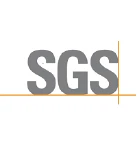Postdoctoral Scholar Institute for Data Intensive Research in Astrophysics & Cosmology (3 positions)
Seattle, OR - USA
Job Summary
We invite applications for the 2026 DiRAC Fellowship in the Department of Astronomy at the University of Washington. These up to 3-year full time postdoctoral positions are available to promising early-career scientists who are:
Ready to engage in self-directed research that complements the work done at UWs Institute for Data-Intensive Research in Astrophysics and Cosmology (DiRAC; ). Active areas include: Transients and Variable Star Science Solar System Science Milky Way Structure Extragalactic Science Cosmology and Astronomical Software Development.
Excited by the prospect of leading and participating in early science with Rubin Observatory and the Legacy Survey of Space and Time (LSST; ).
Enthusiastic about exploring and applying new statistical computational or machine learning techniques to astronomical data sets and extending current methodology to be applicable in the era of big data.
Looking forward to collaborating with software engineers and researchers across all areas of astrophysics and fields such as computer science and statistics.
Applicants should demonstrate excellence in research that complements or builds upon ongoing research directions within the DiRAC Institute. Those with innovative research programs and ideas involving first science with LSST are especially encouraged to apply. Successful candidates will work with the current DiRAC and UW Astronomy faculty and researchers to develop their own programs of research and innovation.
DiRAC () is a research institute within the Astronomy Department () at the University of Washington. Its mission is to expand the frontiers of astrophysics enabled by breakthroughs in large surveys data-intensive algorithms and software. The Institute comprises seven faculty and senior fellows and over 30 postdoctoral researchers research scientists software engineers and graduate students. DiRAC leads the construction of Rubin Observatorys time domain and solar system processing pipelines is a founding Hub of LINCC the LSST Interdisciplinary Network for Computing and Collaboration ( co-leads the LINCC Frameworks program to provide advances in software infrastructure needed to enable LSST analyses ( and hosts the LINCC Science Platform ().
This position is a full time 1 year (12 month) appointment. At the end of this period this appointment may be renewed upon mutual agreement and subject to satisfactory performance and funding availability (up to 3 years total). The base salary range for this position is $70008-$85000 per year commensurate with experience and qualifications or as mandated by a U.S. Department of Labor prevailing wage determination. Postdoctoral scholars are represented by UAW 4121 and are subject to the collective bargaining agreement unless agreed exclusion criteria apply. For more information please visit the University of Washington Labor Relations website. The anticipated start date for this position is September 1 2026.
We share a strong commitment to equity and inclusion; we particularly encourage applications from candidates historically underrepresented in astronomy in any area of research. We also welcome applicants who are interested in collaborating broadly within the Astronomy Department as well as engaging in outreach and professional development activities. Candidates should address in the cover letter how their work potentially complements connects to or extends current faculty efforts at UW.
A Ph.D. or foreign equivalent degree in astronomy physics computer science or a related subject is required.
Key Skills
- Litigation
- Ale
- Infrastructure Development
- Application Programming
- Jboss
- Data Analysis









